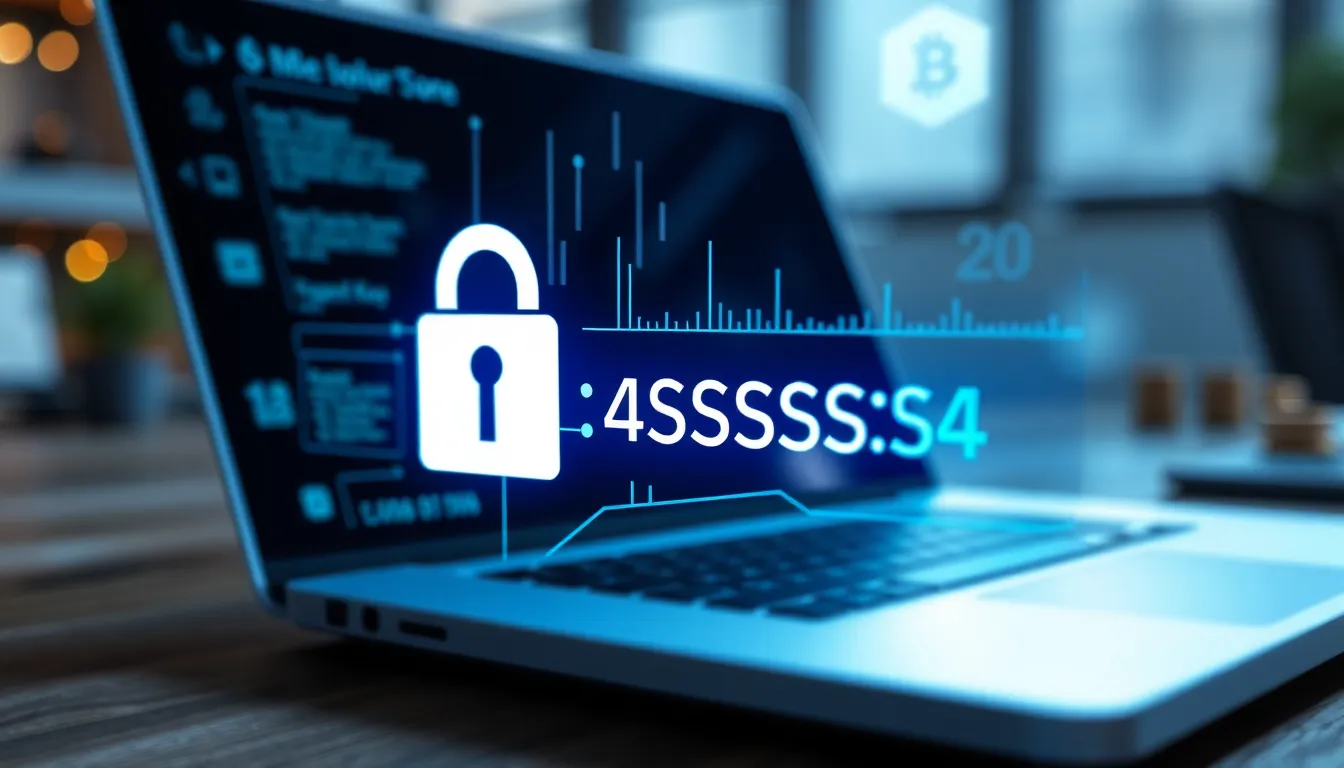Table of Contents
ToggleIn the world of digital currencies, a blockchain address is like your home address—but for your virtual assets. Just as you wouldn’t want strangers showing up at your front door, you definitely don’t want your crypto to end up in the wrong hands. A blockchain address serves as a unique identifier, allowing users to send and receive digital currency securely.
What Is a Blockchain Address?
A blockchain address serves as a unique identifier within a blockchain network. This identifier facilitates the sending and receiving of digital currencies. By analogy, it’s similar to a home address, directing digital assets to a specific location.
Secure storage of this address is crucial to prevent unauthorized access to one’s virtual assets. Protection measures can include using hardware wallets or encrypted password management tools. Each blockchain address derives from a user’s public key, which is generated during wallet creation.
Digits and characters compose blockchain addresses, making them distinct for every user. Common formats include Bitcoin addresses that typically start with a ‘1’ or ‘3.’ Ethereum addresses, on the other hand, start with ‘0x’ followed by a unique string of alphanumeric characters.
Users must never share their private keys publicly, as this grants full access to their funds. Mismanagement of private keys can result in irreversible loss of digital currencies. When sending assets, double-check the recipient’s address to avoid mistakes, since transactions are immutable once confirmed.
Blockchain addresses allow participation in various activities, from trading to decentralized finance. They play a significant role in ensuring transaction transparency and security on the blockchain. Understanding how to utilize and protect this identifier is vital for effective cryptocurrency management.
Components of a Blockchain Address


A blockchain address consists of two main components: the public key and the private key. Both play vital roles in ensuring secure transactions and identity verification in the cryptocurrency ecosystem.
Public Key
The public key serves as an equivalent to a bank account number. Users derive this key from a private key using cryptographic algorithms. With it, individuals can share their blockchain addresses publicly for receiving funds. Generating a public key ensures that anyone can send digital currency to the associated blockchain address while keeping the private key secure. Security relies on the relationship between both keys; the public key enables transactions without exposing sensitive information.
Private Key
The private key functions as a digital signature for transaction authorization. Keeping this key confidential is crucial, as it grants exclusive access to manage and control cryptocurrency assets. Users generate the private key together with the public key, often represented in a long alphanumeric format. Losing or sharing the private key results in irretrievable loss of funds since anyone possessing it can execute transactions. Safeguarding the private key with security measures, such as hardware wallets and encrypted storage, bolsters security against unauthorized access.
Types of Blockchain Addresses
Blockchain addresses come in various types, primarily tailored for specific cryptocurrencies and platforms.
Cryptocurrency-Specific Addresses
Cryptocurrency-specific addresses vary based on the digital currency involved. Bitcoin addresses often start with ‘1’, ‘3’, or ‘bc1’, while Ethereum addresses begin with ‘0x’. Different formats arise due to distinct protocols and technologies. Litecoin addresses can start with ‘L’ or ‘M’, showcasing further differentiation. Many cryptocurrencies utilize public and private key pairs to create unique identifiers, enhancing security. Users must ensure the correct address format when sending and receiving funds, as incompatible addresses prevent successful transactions.
Platform Variations
Platforms regularly adopt their addressing systems, reflecting the requirements of their ecosystems. For instance, exchanges like Binance or Coinbase employ unique address formats for user accounts. These platform-specific addresses facilitate internal transactions within their networks. Wallets also provide different address types, such as legacy and SegWit addresses in Bitcoin. Different variations optimize transaction speed and fees. Understanding these variations is crucial to prevent loss of assets during transfers.
Importance of Blockchain Addresses
Blockchain addresses play a critical role in managing digital assets. These unique identifiers ensure accurate transactions between users on a blockchain. Every transaction relies on these addresses to route and verify digital currency exchanges effectively.
Maintaining the security of blockchain addresses is paramount. Without proper security measures, unauthorized entities can access and transfer funds. Understanding how to locate and use a blockchain address helps prevent significant financial losses.
Effective usage of blockchain addresses fosters transparency within the cryptocurrency ecosystem. Users can follow transaction histories, ensuring accountability in financial dealings. Additionally, these addresses support various activities, including trading and decentralized finance (DeFi) applications.
Recognizing the differences among blockchain address types is essential for users. Each cryptocurrency has specific address formats tailored to its technology. For instance, Bitcoin addresses typically begin with ‘1’, ‘3’, or ‘bc1’, while Ethereum addresses start with ‘0x’.
Address compatibility impacts successful transactions. Using the correct address type fosters seamless transfers across platforms. Blockchains enforce strict address specifications to safeguard user funds.
Security measures like hardware wallets and encrypted storage protect private keys associated with these addresses. Users reliant on these wallets maintain exclusive control over their assets. Always verifying recipient addresses before sending transactions minimizes the risk of loss.
Blockchain addresses form the backbone of digital currency management. These essential identifiers enhance security, transparency, and efficiency in the evolving landscape of blockchain technology.







